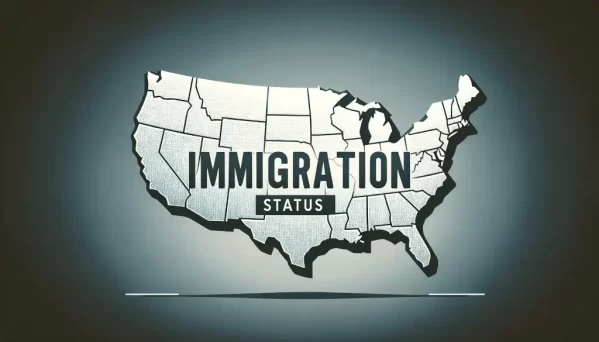Understanding Rights of Illegal Immigrants: A Comprehensive Guide
For over a century and a Half the issue of “Do Undocumented Immigrants Have Rights” was answered multiple times. Like it or not- The answer is Yes, illegal aliens have constitutional rights.
Key Takeaways
- Constitutional Protections: Illegal immigrants are entitled to certain constitutional rights and protections.
- Work and Benefits Restrictions: They cannot work legally or access most public benefits without proper documentation.
- Legal and Civil Rights: They have rights to due process, legal representation, and protection against discrimination.
Table of Contents
- A Heated Topic
- Why should immigrants have rights?
- Constitution’s Bill of Rights
- The First Amendment
- Fourth Amendment
- Fifth Amendment
- Sixth Amendment
- Section 1 of The 14th Amendment
- All persons born or naturalized
- The Critics All Claim
- Zadvydas v. Davis (2001)
- Plyler v. Doe (1982)
- Almeida-Sanchez v. United States (1973)
- Yick Wo v. Hopkins (1886)
- Wong Win v. United States (1896)
- Constitutional Protection
- A Lawyer Should Know Better
- Conclusion
- Do Illegal Immigrants Have Rights: What You Need To Know
- Frequently Asked Questions
A Heated Topic
The topic of whether or not illegal immigrants have rights is undeniably a heated one in today’s political climate. People on both sides of the aisle are passionate about their beliefs, often leading to contentious debates and disagreements. It’s crucial to navigate this topic with sensitivity and an open mind. Stopping to consider the complex intersection of constitutional principles, human rights, and immigration policy.

While exploring what the Constitution says about immigration; it becomes clear that this is a multifaceted issue with deep historical roots. The Founding Fathers crafted a document that aimed to uphold certain fundamental rights for all individuals within U.S. borders.
However, the specific legal protections afforded to non-citizens, especially those who are in the country unlawfully; have been subject to interpretation and debate over the years. One key question that arises in this discussion is:
Why should immigrants have rights?
Advocates argue that respecting the rights of all individuals, regardless of their immigration status, reflects the values of fairness and justice. Those values are what underpin American society. When we uphold civil liberties for everyone within U.S. borders; we demonstrate our commitment to equality under the law and basic human dignity.
What Does the U.S Constitution Say About Immigration
The U.S. Constitution, the bedrock of our nation’s legal framework, addresses various aspects of immigration. Setting the foundation for understanding the rights of both documented and undocumented immigrants.

While the Constitution does not explicitly mention illegal immigration, it does provide a framework for interpreting and understanding the rights that apply to all individuals within U.S. borders.
Section 8, clause 4, of Article 1 of the United States Constitution explicitly gives Congress the authority to create a consistent rule for naturalization. This direct assignment of power to Congress is designed to avoid the potential chaos of allowing each state to grant citizenship independently.
The First Amendment guarantees
freedom of speech, religion, and assembly for everyone within U.S. jurisdiction, regardless of their citizenship status. This means that undocumented immigrants have the right to express themselves freely and practice their faith without fear of government intervention.
Moving on to the Fourth Amendment, which safeguards against unreasonable searches and seizures by law enforcement authorities, it applies to all individuals on U.S. soil. This means that even undocumented immigrants are protected from arbitrary invasions of their privacy or property without a warrant or probable cause.
The Fifth Amendment provides due process protections for all persons under U.S. jurisdiction, ensuring fair treatment in legal proceedings regardless of immigration status. These constitutional provisions underscore that immigrants should have basic rights recognized and upheld within American society.
Constitution’s Bill of Rights
The Constitution’s Bill of Rights lays out crucial protections for individuals living in the United States, regardless of their citizenship status. These rights are not exclusive to citizens and extend to all persons within the country’s borders.
This means that illegal immigrants, often referred to as undocumented immigrants, are also entitled to certain rights under the Constitution. The Bill of Rights encompasses a wide array of protections aimed at safeguarding individual liberties and ensuring due process under the law.
Illegal immigrants
When it comes to illegal immigrants, debates often arise around whether they should have the same rights as citizens. Some argue that extending full constitutional protections to non-citizens undermines the rule of law and incentivizes unlawful immigration.

The Constitution’s emphasis on equality and justice
However, others contend that basic human rights should be upheld regardless of one’s legal status. The Constitution’s emphasis on equality and justice suggests that immigrants should not be deprived of fundamental rights solely based on their immigration status.
Restrictions on non-citizens’
While there are certain restrictions on non-citizens’ rights in specific contexts, such as voting in federal elections or running for federal office, many constitutional provisions apply universally. For example, the Fourth Amendment protects against unreasonable searches and seizures for all individuals on U.S. soil, including undocumented immigrants.
Similarly, the Fifth Amendment guarantees due process and protection against self-incrimination to anyone facing legal proceedings in the United States, irrespective of their citizenship status. These constitutional safeguards underscore the principle that all individuals within America’s jurisdiction are entitled to fundamental rights and fair treatment under the law.
The First Amendment
When it comes to the First Amendment, it’s essential to understand that it’s a cornerstone of the American Constitution, encompassing crucial rights such as freedom of speech, religion, and the press. But how does this apply to non-citizens residing in the US, particularly undocumented immigrants? Well, while the First Amendment doesn’t explicitly differentiate between citizens and non-citizens in its provisions, it generally protects individuals within US borders regardless of their legal status.
For instance, the freedom of speech guaranteed by the First Amendment extends to all individuals present in the United States. This means that undocumented immigrants have the right to express their opinions and ideas without fear of government censorship or retaliation.

Participating in protests
Whether participating in protests or voicing dissenting views online, immigrants are entitled to exercise their freedom of speech just like any citizen. Similarly, when it comes to religious freedoms under the First Amendment, non-citizens also enjoy protection against governmental interference in their worship practices.
This means that undocumented immigrants can attend religious services, observe holidays according to their faith traditions, and engage in religious expression without facing discrimination or persecution. The overarching principle is that basic human rights transcend legal status when it comes to fundamental freedoms enshrined in the US Constitution.
Fourth Amendment
The Fourth Amendment of the U.S. Constitution ensures that “the right of the people to be secure in their persons, houses, papers, and effects, against unreasonable searches and seizures, shall not be violated.” This amendment is crucial in protecting everyone within U.S. borders from unwarranted intrusions by the government. But the question arises: do these protections extend to non-citizens, including undocumented immigrants?

The Supreme Court
The Supreme Court has tackled this issue in various cases over the years. One landmark case is United States v. Verdugo-Urquidez (1990), where the court ruled that certain constitutional protections under the Fourth Amendment do not apply to non-citizens outside of U.S. territory.
However, when it comes to individuals physically present in the United States, regardless of their immigration status, they are generally entitled to Fourth Amendment protections. While illegal immigrants may not have all the same rights as citizens under every circumstance, they are still afforded certain protections under the Constitution.
This means that undocumented immigrants have rights when it comes to privacy and freedom from unreasonable searches and seizures by law enforcement authorities. The aim is to ensure that all individuals on U.S. soil are treated fairly and justly under the law, regardless of their immigration status.
Fifth Amendment
The Fifth Amendment of the U.S. Constitution is a crucial piece of legislation that protects individuals’ rights, regardless of their immigration status. This amendment ensures that no person shall be deprived of life, liberty, or property without due process of law. This means that undocumented immigrants are entitled to certain legal protections under the Constitution, including the right to a fair trial and the right to remain silent.
Protection against self-incrimination
One key aspect of the Fifth Amendment is the protection against self-incrimination. This means that individuals cannot be forced to provide potentially self-damaging information or testimony against themselves.
For illegal immigrants, this right is especially important during interactions with law enforcement or immigration authorities. By invoking their Fifth Amendment right to remain silent, undocumented immigrants can protect themselves from inadvertently admitting to violations of immigration laws.

Moreover, the Fifth Amendment also guarantees equal protection under the law for all individuals within U.S. jurisdiction. While undocumented immigrants may not have all the same rights and privileges as citizens, they are still entitled to certain fundamental protections outlined in this constitutional amendment.
This includes safeguards against arbitrary detention or mistreatment by government authorities, ensuring that even non-citizens have recourse to legal remedies in cases where their rights are violated. In recent years, there has been ongoing debate about whether illegal immigrants should be afforded full constitutional rights as citizens.
Critical safeguards
Supporters argue that upholding these protections is essential for maintaining a just and humane society, while critics contend that non-citizens should not receive the same level of legal protection as citizens. Despite differing opinions on this issue, it remains clear that the Fifth Amendment serves as a critical safeguard for all individuals living within the United States’ borders, regardless of their immigration status or background.
Sixth Amendment
The Sixth Amendment of the U.S. Constitution is a vital component in ensuring fair treatment and due process for all individuals, regardless of their immigration status. This amendment guarantees several rights to individuals facing criminal charges, including the right to a speedy and public trial by an impartial jury, the right to confront witnesses against them, and the right to have legal representation. While these rights are fundamental in our justice system, there has been ongoing debate about whether they apply to undocumented immigrants.

Right to legal representation
One key aspect of the Sixth Amendment is the right to legal representation. This means that anyone facing criminal charges has the right to have an attorney represent them in court.
However, for undocumented immigrants, accessing legal representation can be challenging due to their immigration status and limited resources. Despite this hurdle, some organizations provide pro bono legal services to ensure that all individuals have adequate representation.
Another crucial element of the Sixth Amendment is the right to confront witnesses against you. This means that individuals have the opportunity to cross-examine witnesses presented by the prosecution.
For undocumented immigrants who may fear retaliation or lack connections in their communities due to their status, exercising this right can be particularly daunting. Nonetheless, this aspect of due process is essential in safeguarding individuals’ rights and ensuring a fair trial for all parties involved.
Section 1 of The 14th Amendment
The 14th Amendment to the U.S. Constitution is a crucial piece of legislation when discussing the rights of individuals, including non-citizens and immigrants. This amendment, ratified in 1868, states that all persons born or naturalized in the United States are citizens of the country and of the state in which they reside. The amendment further guarantees that no state shall deny any person within its jurisdiction “equal protection of the laws.” This provision has been pivotal in shaping the legal landscape for immigrants, both documented and undocumented.
All persons born or naturalized
One key aspect of the 14th Amendment is its focus on equal protection under the law. This means that regardless of an individual’s immigration status, they are entitled to fair and equal treatment by governmental entities.

The Supreme Court has affirmed this principle in various cases over the years, emphasizing that all individuals within U.S. borders are entitled to basic human rights and legal protections. This protection extends to undocumented immigrants as well, ensuring that they cannot be discriminated against solely based on their immigration status.
Moreover, Section 1 of the 14th Amendment has been instrumental in upholding due process rights for all individuals, including non-citizens. Due process ensures that individuals have certain legal safeguards when facing government actions that could deprive them of life, liberty, or property.
Right to a fair hearing
This means that even undocumented immigrants have a right to a fair hearing before being subjected to deportation or other legal consequences. The Supreme Court has consistently recognized these due process protections as essential components of American jurisprudence, underscoring the importance of upholding these rights for all individuals within U.S. borders – regardless of their citizenship status.
The Critics All Claim
The critics all claim that illegal immigrants do not have the same rights as citizens under the U.S. Constitution. They argue that since these individuals are not legal residents of the country, they should not be entitled to the protections and privileges afforded to citizens. However, it is crucial to note that the Constitution does not explicitly differentiate between citizens and non-citizens when it comes to certain fundamental rights.
Amendments to the Constitution
One of the main arguments raised by critics is whether the amendments in the Constitution apply to non-citizens, particularly undocumented immigrants. While there may be debates on this issue, legal precedents such as Plyler v. Doe (1982) have affirmed that certain constitutional protections apply to all individuals within U.S. jurisdiction, regardless of their immigration status.

This means that undocumented immigrants are still entitled to due process and equal protection under the law. Another point of contention is whether non-citizens, including illegal immigrants, are protected by the First Amendment of the Constitution.
The First Amendment guarantees freedom of speech, religion, assembly, and petition for redress of grievances – rights that are considered fundamental in American society. Critics argue that these rights should only apply to citizens; however, court cases like Yick Wo v. Hopkins (1886) have established that these freedoms extend to all persons within U.S. territory, regardless of their citizenship status or background.
Zadvydas v. Davis (2001)
In Zadvydas v. Davis (2001), the Supreme Court addressed the issue of indefinite detention of immigrants facing deportation. The case involved two lawful permanent residents who had completed their criminal sentences but were still being held in detention pending removal proceedings.
The Court ruled that prolonged detention without a realistic chance of removal violated the Due Process Clause of the Fifth Amendment. This decision highlighted the importance of balancing national security concerns with individuals’ rights, even for non-citizens.
The Zadvydas decision emphasized that immigrants, regardless of their legal status, are entitled to certain constitutional protections under the Fifth Amendment. The ruling recognized that fundamental rights apply to all individuals within U.S. borders, irrespective of citizenship status.
It underscored the principle that due process rights must be upheld for everyone residing in this country, including undocumented immigrants and non-citizens facing deportation. This landmark case reaffirmed the significance of constitutional safeguards for all individuals under U.S. jurisdiction, shedding light on the complexities surrounding immigration and civil liberties.
It prompted discussions on how to balance immigration enforcement with respecting basic human rights and legal principles. As debates continue about whether illegal immigrants should have rights equal to citizens’, Zadvydas v. Davis serves as a crucial reminder of the enduring importance of protecting individual liberties enshrined in the American Constitution, regardless of one’s immigration status or background.
Plyler v. Doe (1982)
In the landmark case of Plyler v. Doe in 1982, the U.S. Supreme Court made a significant ruling regarding the rights of illegal immigrants in the United States. This case revolved around a Texas law that denied funding for education to children who were not legally admitted into the country. The Supreme Court, in a 5-4 decision, struck down this law, stating that denying education to these children violated their rights under the Equal Protection Clause of the Fourteenth Amendment.
The court’s decision was based on the principle that all individuals within U.S. borders, regardless of their immigration status, are entitled to certain fundamental rights and protections under the Constitution. This ruling emphasized that even non-citizens have basic human rights that must be respected by the government.
The justices underscored that denying education to children based on their immigration status was discriminatory and unconstitutional. Plyler v. Doe set an important precedent for recognizing and upholding the rights of illegal immigrants in various aspects of American life.
It highlighted that while there are distinctions between citizens and non-citizens in terms of certain privileges, fundamental rights such as access to education cannot be denied solely based on immigration status. This case reaffirmed that all individuals, regardless of their legal standing, are protected by key constitutional principles and should be treated with dignity and fairness under the law.
Almeida-Sanchez v. United States (1973)
In Almeida-Sanchez v. United States (1973), the case focused on the rights of individuals who are not US citizens and are residing in the country without proper documentation, commonly referred to as undocumented immigrants or illegal immigrants. The Supreme Court ruled that non-citizens, regardless of their immigration status, are still entitled to certain constitutional protections under the Fourth Amendment. This amendment guards against unreasonable searches and seizures by the government, ensuring that all individuals within the United States are safeguarded from unwarranted intrusion into their privacy and property.
The decision in Almeida-Sanchez v. United States reaffirmed the principle that while undocumented immigrants may not have full citizenship rights, they are still entitled to fundamental protections guaranteed by the Constitution. This case highlighted the importance of upholding these rights for all individuals within US borders, regardless of their legal status.
The Fourth Amendment serves as a crucial shield against governmental overreach and abuse of power, emphasizing the core values of liberty and justice enshrined in the American Constitution. By recognizing that non-citizens have rights under the Constitution, particularly concerning privacy and freedom from arbitrary searches, Almeida-Sanchez v. United States set a precedent for acknowledging and upholding basic human rights for all individuals within US territory.
This case underscored that even those considered illegal or undocumented immigrants have inherent dignity and deserve fair treatment under the law. Upholding these constitutional protections not only safeguards individual liberties but also reinforces America’s commitment to justice and equality for all who reside within its borders.
Yick Wo v. Hopkins (1886)
In 1886, the Supreme Court case Yick Wo v. Hopkins set a crucial precedent regarding the rights of non-citizens in the United States. This case involved Chinese immigrants who were denied permits to operate laundries in San Francisco based on discriminatory ordinances.
The Supreme Court ruled that these ordinances violated the Equal Protection Clause of the Fourteenth Amendment, establishing that non-citizens are entitled to equal protection under the law. Yick Wo v. Hopkins highlighted the principle that all individuals, regardless of their citizenship status, are entitled to fundamental rights and protections under the Constitution.
This landmark case emphasized that the American legal system should uphold fairness and justice for all individuals within its borders, including immigrants. The legacy of Yick Wo v. Hopkins continues to resonate in discussions about immigrant rights today.
This case serves as a powerful reminder of the importance of ensuring that non-citizens have access to due process, equal treatment under the law, and basic human rights. By recognizing and upholding these principles, society can strive towards a more just and inclusive legal system that respects the dignity and humanity of all individuals, regardless of their immigration status.
Wong Win v. United States (1896)
In the case of Wong Win v. United States (1896), the Supreme Court made a significant ruling that continues to shape discussions about the rights of non-citizens in the United States. Wong Win, a Chinese immigrant who was born in the United States, was denied re-entry into the country after visiting China.
The case raised questions about whether non-citizen residents are entitled to constitutional protections under the Fourteenth Amendment. The Court ultimately decided that Wong Win, as a U.S.-born individual, should be considered a citizen and therefore protected by the Constitution.
This landmark case highlighted the importance of understanding and interpreting constitutional rights concerning immigration. While some argue that non-citizens should not have the same rights as citizens, others emphasize the fundamental principles of equality and justice enshrined in the American Constitution.
The ruling in Wong Win v. United States set a precedent for recognizing that individuals, regardless of their citizenship status, are entitled to certain protections under the law. The decision in Wong Win v. United States serves as a reminder of how complex and nuanced discussions about immigration and constitutional rights can be.
It underscores the need for careful consideration of legal precedents and historical context when addressing issues related to immigrant rights. As debates continue about what rights undocumented immigrants should have and how these intersect with constitutional principles, cases like Wong Win v. United States remain crucial touchstones for understanding where non-citizens fit within America’s legal framework.
Constitutional Protection
Illegal immigrants, despite their status, are afforded certain constitutional protections under the United States Constitution. The 14th Amendment plays a significant role in ensuring that all individuals, regardless of citizenship status, are entitled to due process and equal protection under the law.
This amendment was ratified after the Civil War to grant citizenship and rights to former slaves, but its language has been interpreted to apply more broadly to all individuals within U.S. jurisdiction. While non-citizens may not have all the same rights as citizens, they are still protected by certain provisions of the Constitution.
For example, the Fourth Amendment protects against unreasonable searches and seizures for everyone on U.S. soil, regardless of their immigration status. This means that illegal immigrants cannot be subject to arbitrary searches or arrests without probable cause.
Additionally, the Fifth Amendment guarantees that no person shall be deprived of life, liberty, or property without due process of law. This means that illegal immigrants have the right to a fair legal process if they are detained or facing deportation proceedings.
The Sixth Amendment further ensures the right to legal counsel for those facing criminal charges, including undocumented immigrants. These constitutional safeguards highlight the importance of upholding basic rights for all individuals within U.S. borders, regardless of their citizenship status.
A Lawyer Should Know Better
A lawyer, of all people, should know better than to overlook the fundamental rights that apply to all individuals within the United States, regardless of their immigration status. A lawyer who is in Government definitely should know better. The American Constitution clearly outlines these rights, including protections against unreasonable searches and seizures as per the Fourth Amendment.
Legal professionals must uphold these principles and advocate for justice for all, even when dealing with undocumented immigrants. After all, the Constitution does not differentiate between citizens and non-citizens when it comes to certain basic rights.

Furthermore, the Sixth Amendment guarantees a fair trial and legal representation to anyone accused of a crime in the United States. This means that undocumented immigrants also have the right to due process and a defense attorney to represent their interests in court.
A lawyer must be aware of these constitutional protections and work diligently to ensure that every individual’s rights are respected under the law. In landmark cases like Zadvydas v. Davis (2001) and Plyler v. Doe (1982), the Supreme Court has affirmed that even undocumented immigrants have certain constitutional rights that must be upheld by the government.
Lawyers must be well-versed in these legal precedents and fight for justice on behalf of all individuals, regardless of their immigration status. Upholding these values is not only a matter of professionalism but also a reflection of our commitment to fairness and equality under the law.
Conclusion
In the grand scheme of things, the discussion surrounding the rights of undocumented immigrants touches upon the very essence of American ideals and values. Despite the contentious debates and differing perspectives, one thing remains clear: every human being deserves to be treated with dignity and respect. The U.S. Constitution, with its rich tapestry of amendments and protections, serves as a beacon of hope for all individuals within its borders, regardless of their immigration status.
As we navigate through the complexities of immigration law and constitutional rights, it becomes evident that the issue is not merely black-and-white. The Supreme Court rulings in cases like Zadvydas v. Davis and Plyler v. Doe shed light on the nuances and intricacies involved in balancing national security concerns with fundamental human rights.
It is a delicate dance between upholding the rule of law and ensuring that every person is afforded due process and equal protection under it. While the legal landscape surrounding the rights of undocumented immigrants may be mired in ambiguity and debate, one thing remains crystal clear: humanity knows no borders.
As we move forward as a society, it is crucial to remember that compassion, empathy, and understanding are not just virtues but essential components of a thriving democracy. By embracing our shared humanity and extending a hand of solidarity to those who seek refuge within our shores, we not only uphold the principles enshrined in our Constitution but also reaffirm our commitment to justice for all.
Do Illegal Immigrants Have Rights: What You Need To Know
Frequently Asked Questions
Do illegal immigrants have rights in the U.S.?
Yes, illegal immigrants have certain rights, including protections under the Constitution, such as due process and equal protection under the law.
What rights do illegal immigrants have?
They have the right to due process, freedom of speech and religion, and protection against unlawful search and seizure.
Can illegal immigrants work legally in the U.S.?
No, illegal immigrants cannot work legally without proper authorization and work permits.
Are illegal immigrants eligible for public benefits?
Generally, illegal immigrants are not eligible for most public benefits, such as Medicaid and food stamps
What legal protections do illegal immigrants have?
They have the right to legal representation in court, protection against discrimination, and the right to seek asylum.

I have recently started a web site, the info you provide on this web site has helped me tremendously. Thanks for all of your time & work. “If you see a snake, just kill it. Don’t appoint a committee on snakes.” by H. Ross Perot.